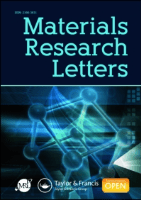
Materials Research Letters
Scope & Guideline
Fostering Collaboration in Cutting-Edge Materials Research
Introduction
Aims and Scopes
- Advanced Materials Characterization:
The journal publishes studies employing advanced characterization techniques such as in situ electron microscopy, X-ray diffraction, and synchrotron methods to explore microstructural properties at the atomic and nanoscale. - Innovative Materials Processing Techniques:
Research on novel fabrication methods, particularly additive manufacturing and severe plastic deformation, is a consistent theme, highlighting how these techniques can enhance material properties. - Mechanisms of Strength and Ductility:
There is a strong emphasis on understanding the mechanisms that govern the strength-ductility synergy in various materials, particularly high-entropy alloys and composites, helping to bridge the gap between theoretical predictions and practical applications. - Multiscale Material Design:
The journal features research that addresses multiscale approaches to material design, integrating computational methods with experimental validation to optimize material performance. - Application-Driven Research:
Research often focuses on the applicability of materials in real-world scenarios, such as biomedical applications, energy storage, and structural integrity, reflecting the journal's commitment to impactful science.
Trending and Emerging
- High-Entropy Alloys (HEAs):
Research on HEAs has surged, focusing on their unique mechanical and thermal properties, which enable promising applications in extreme environments and advanced engineering. - Additive Manufacturing Innovations:
The rapid advancement of additive manufacturing techniques continues to be a hot topic, with studies exploring new materials, processes, and applications that enhance performance and reduce costs. - Functional Nanomaterials:
There is an increasing focus on nanomaterials with specialized functions, such as catalysts, sensors, and energy storage materials, driven by their potential to revolutionize various industries. - Biomimetic and Bioinspired Materials:
Research exploring materials designed based on biological systems is gaining traction, reflecting a growing interest in sustainability and efficiency in material design. - Machine Learning and AI in Materials Science:
The integration of machine learning and artificial intelligence for materials discovery and optimization is emerging as a critical area of research, indicating a trend towards data-driven approaches in materials science.
Declining or Waning
- Traditional Alloy Systems:
Research focused on classical alloy systems, particularly those that do not incorporate advanced processing techniques or multi-principal elements, has seen a decrease as the field moves towards more complex materials. - Basic Mechanical Testing:
Papers that primarily report on basic mechanical testing of materials without novel insights into mechanisms or applications are becoming less common, as the focus shifts to more integrated approaches involving advanced characterization and processing. - Single-Property Studies:
There is a waning interest in studies that examine single properties in isolation, such as tensile strength or hardness, without a comprehensive analysis of how these properties interact or contribute to overall material performance. - Conventional Ceramics:
While ceramics remain important, the journal has seen a decline in papers focused solely on traditional ceramic materials, particularly those lacking innovative processing or functional enhancements. - Theoretical Studies Without Experimental Validation:
Research that relies solely on theoretical models without robust experimental validation is less favored, as the journal emphasizes the importance of empirical data to support theoretical claims.
Similar Journals
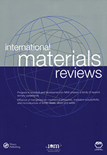
INTERNATIONAL MATERIALS REVIEWS
Unveiling Innovations in Metals and AlloysINTERNATIONAL MATERIALS REVIEWS, published by SAGE Publications Inc, is a leading journal dedicated to the comprehensive analysis of contemporary research in the fields of materials chemistry, mechanical engineering, mechanics of materials, and the study of metals and alloys. With an impressive impact factor and a Q1 ranking across multiple categories such as Materials Chemistry and Mechanical Engineering in 2023, it ranks amongst the top journals for innovative materials research. The journal has a long-standing history since its inception in 1987 and continues to serve as a crucial resource for academics and professionals alike. Although it is not open access, it is renowned for its rigorous peer-review process and its commitment to disseminating high-quality materials science research globally. Researchers, students, and industry professionals benefit greatly from the journal's insightful reviews, both for the advancement of theoretical knowledge and practical applications within the fast-evolving materials field.
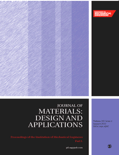
PROCEEDINGS OF THE INSTITUTION OF MECHANICAL ENGINEERS PART L-JOURNAL OF MATERIALS-DESIGN AND APPLICATIONS
Navigating the Frontiers of Materials Design and ApplicationPROCEEDINGS OF THE INSTITUTION OF MECHANICAL ENGINEERS PART L-JOURNAL OF MATERIALS-DESIGN AND APPLICATIONS is a prestigious academic journal published by SAGE PUBLICATIONS LTD, focusing on the dynamic fields of mechanical engineering and materials science. With an impressive impact factor reflective of its rigorous scholarly contributions, this journal serves as a vital platform for the dissemination of innovative research and practical applications in materials design and engineering processes. Since its inception in 1999 and continuing through 2024, it has maintained a robust reputation, achieving a Q2 ranking in both Materials Science (miscellaneous) and Mechanical Engineering categories, as well as commendable Scopus ranks that place it in the top percentiles of its fields. Located in the United Kingdom, the journal encourages submissions from researchers and professionals who are seeking to advance their understanding of materials applications while fostering interdisciplinary collaboration. Although it currently operates under traditional access terms, the journal prioritizes impactful research that addresses contemporary challenges in design and manufacturing, ensuring that it remains a must-read for anyone invested in the innovations shaping our technological landscape.

Materials Today Communications
Elevating Research Impact in the World of MaterialsMaterials Today Communications, published by ELSEVIER, stands as a prominent platform within the fields of Materials Chemistry, Materials Science, and Mechanics of Materials. With an open access format, this journal facilitates global dissemination of knowledge, aimed at enhancing collaboration and innovation among researchers, professionals, and students worldwide. Established in 2014 and converging through 2024, the journal has rapidly ascended through the ranks, achieving a commendable Q2 category status in multiple relevant categories. Specifically, its Scopus rankings highlight its influence, with rankings in the 64th to 69th percentile in various materials science domains. A key resource for those engaged in cutting-edge materials research, Materials Today Communications provides insightful coverage of contemporary advancements, bridging the gap between theoretical exploration and practical application.

Multiscale and Multidisciplinary Modeling Experiments and Design
Fostering a global community for cutting-edge modeling experiments.Multiscale and Multidisciplinary Modeling Experiments and Design is a dynamic journal published by SPRINGERNATURE, dedicated to advancing the fields of applied mathematics, materials science, and mechanics of materials. With an ISSN of 2520-8160 and an E-ISSN of 2520-8179, this journal provides a platform for innovative research and multidisciplinary approaches that address complex modeling and experimental challenges from 2018 to 2024. Ranked in the Q3 quartile across its categories and holding respectable positions within Scopus rankings, it serves as a vital resource for researchers and professionals seeking to explore emerging techniques and solutions in their fields. Despite its recent inception, Multiscale and Multidisciplinary Modeling Experiments and Design fosters a collaborative environment for knowledge exchange, making it essential for anyone at the forefront of scientific discovery. Open access availability ensures that the groundbreaking research published within is accessible to a broad audience, promoting global collaboration and innovations.
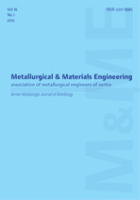
Metallurgical & Materials Engineering
Empowering discoveries in metallurgy and alloys.Metallurgical & Materials Engineering, published by Netherlands Press, is a prominent open access journal that has been advancing the field of metallurgical sciences and materials engineering since 2012. With an ISSN of 2217-8961 and an E-ISSN of 2812-9105, this journal provides a vital platform for researchers, professionals, and students to disseminate and access high-quality peer-reviewed research. As of 2023, it holds a Q4 quartile ranking in Mechanical Engineering and a Q3 ranking in Metals and Alloys, according to Scopus. This reflects its ongoing commitment to high standards despite being in a competitive sector. The journal covers a wide array of topics within the scope of materials science, with a focus on metallurgy and alloy technologies, and serves as a crucial resource for those engaged in innovative material development and application. Offering an open-access model emphasizes its dedication to making research widely available, thereby fostering collaboration and advancement in the materials engineering community. Join us in contributing to a dynamic and essential field of study.

Frontiers in Materials
Unveiling Breakthroughs in Material Technologies.Frontiers in Materials, an esteemed journal published by FRONTIERS MEDIA SA, is a leading platform in the field of Materials Science, with a notable impact factor placing it in the Q2 category of its discipline as of 2023. Since its establishment as an Open Access journal in 2014, it has fostered considerable academic exchange, allowing researchers from around the globe to share their innovative findings and insights. Based in Lausanne, Switzerland, this journal not only emphasizes high-quality peer-reviewed articles but also prioritizes rapid dissemination of research, as evidenced by its commendable Scopus ranking of #62 out of 196 in Materials Science (miscellaneous). By consistently striving to bridge the gap between academia and practical applications, Frontiers in Materials serves as an invaluable resource for researchers, professionals, and students seeking to delve into cutting-edge advancements and transformative applications in materials science.
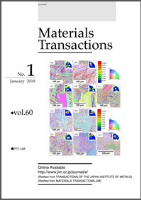
MATERIALS TRANSACTIONS
Fostering Collaboration in Mechanical EngineeringMATERIALS TRANSACTIONS, published by the Japan Institute of Metals & Materials, stands as a pivotal journal in the fields of Condensed Matter Physics, Materials Science, and Mechanical Engineering. Operating since 1993, this peer-reviewed journal aims to disseminate high-quality research that advances our understanding of material properties and behaviors under varied conditions. With an ISSN of 1345-9678 and an E-ISSN of 1347-5320, it provides open access options, ensuring that the latest findings are readily available to a global audience. The journal currently holds a commendable Q3 ranking across multiple categories, underscoring its relevance and impact in the respective fields. Located in Sendai, Japan, MATERIALS TRANSACTIONS has emerged as a vital resource for researchers, professionals, and students alike, fostering innovation and collaboration in material science and engineering methodologies. As the demand for advanced materials continues to rise, this journal serves as an essential platform for sharing and discussing cutting-edge research and developments.
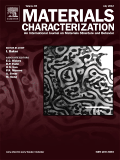
MATERIALS CHARACTERIZATION
Exploring the Depths of Materials EngineeringMATERIALS CHARACTERIZATION is a leading international journal dedicated to the advancement of knowledge in the field of materials science and engineering. Published by Elsevier Science Inc, this esteemed journal has been disseminating vital research since 1970 and continues to be essential for scholars and industry professionals alike. With an impressive impact reflected in its Q1 quartile rankings across several categories—including Condensed Matter Physics, Materials Science, Mechanical Engineering, and Mechanics of Materials—MATERIALS CHARACTERIZATION stands out as a premier outlet for innovative studies and technical advancements. Researchers can access a wealth of peer-reviewed articles that explore properties, characterization techniques, and applications of materials, fostering interdisciplinary collaboration. With a commitment to high-quality research and comprehensive review processes, the journal plays a crucial role in shaping the future of materials science, making it an invaluable resource for anyone invested in this dynamic field.
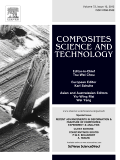
COMPOSITES SCIENCE AND TECHNOLOGY
Driving Innovation in Composite Science and EngineeringComposites Science and Technology, a premier journal published by Elsevier Sci Ltd, serves as a vital resource in the fields of composite materials and engineering. With an impressive 2023 impact factor reflecting its influential contributions, this journal has established itself within the top tier of academic publishing, flaunting a Q1 ranking in both the Ceramics and Composites and Engineering (Miscellaneous) categories. Covering a diverse range of topics from the development of novel composite materials to their practical applications across various industries, it is recognized for its rigorous peer-review process and high-quality research outputs. As reflected in its Scopus rankings, Composites Science and Technology places in the 97th percentile among general engineering journals and the 94th percentile amongst ceramics and composites science literature. Researchers and professionals alike benefit from its comprehensive access to cutting-edge discoveries and advancements, making it an indispensable tool for driving innovation within this dynamic field.

Acta Metallurgica Sinica-English Letters
Innovating Industrial Engineering Through Rigorous Scholarship.Acta Metallurgica Sinica-English Letters, published by the Chinese Academy of Sciences, Institute of Metal Research, is a premier international journal that has been fostering the advancement of knowledge in the fields of Industrial and Manufacturing Engineering and Metals and Alloys since its inception in 1997. With a commendable impact factor and ranking within the top quartiles (Q1) of leading Scopus categories, this journal serves as a vital platform for researchers and professionals to disseminate innovative research findings and groundbreaking methodologies. Notably recognized with a Scopus rank of #34 out of 176 in Materials Science and rank #81 out of 384 in Engineering, it provides a robust space for high-quality, peer-reviewed articles, thus bridging the gap between theoretical advancement and practical application in metallurgy and materials science. Although currently not an open-access journal, its rigorous editorial standards and comprehensive scope ensure that only the most impactful research contributes to the scientific community and industry advancements globally. Acta Metallurgica Sinica-English Letters is an essential read for anyone eager to stay informed on cutting-edge developments within these crucial domains.